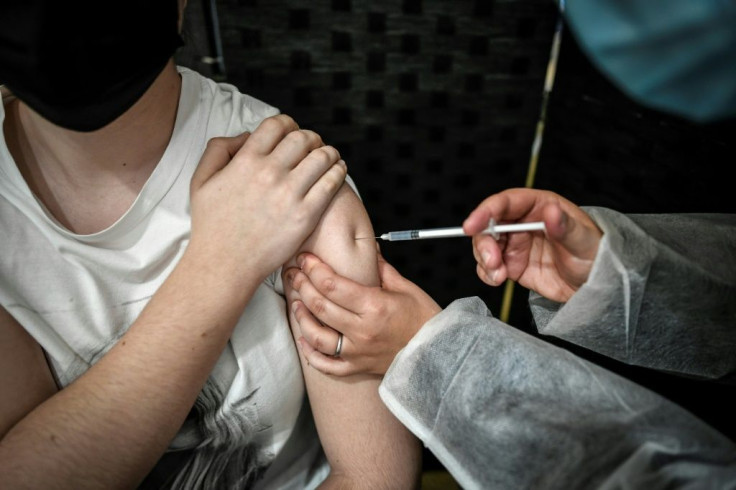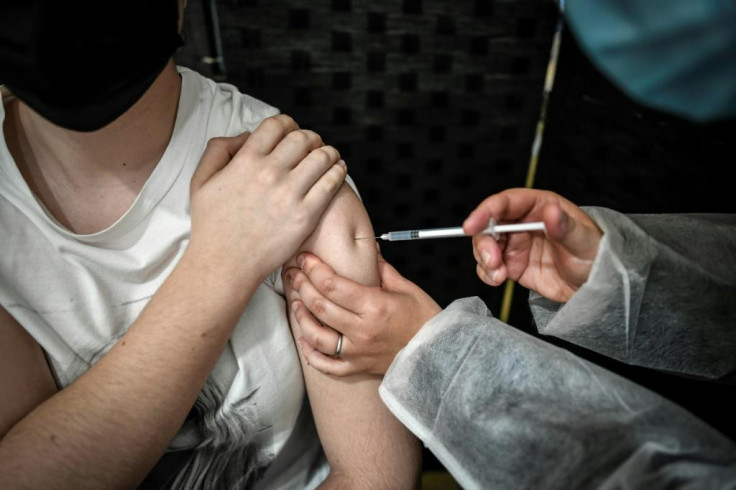Where The Next COVID Outbreaks Could Occur

Vaccines have been available in various parts of the world since late 2020 in an effort to combat the COVID-19 virus. However, while more dangerous variants have tended to get their start in countries with less access to vaccines and lower inoculation rates, experts warn that wealthier countries with more access to the jabs could be the ones that help spur the next big crisis.
Despite initial promising rollouts in countries such as Israel, the UK and the United States, all three have seen rates falter greatly, and a general plateau in new vaccines and shots has seen all three countries stagnate when it comes to the rates of fully vaccinated individuals. Now, experts warn that it could spurn a new crisis when it comes to defeating the virus once and for all and allowing life around the globe to return to true normalcy.
“If one were to draw a graph of vaccine coverage versus danger, it would be a linear progression, the greater the vaccine coverage, the less the dangers and the other way around” Bharat Pankhania, senior clinical lecturer at the University of Exeter told CNN. “Of course, we want to get to 90% coverage, it is a tall order globally. If we get to 70% and stay there, there will be many sporadic outbreaks which may overwhelm health services. Worse, it will create more chances for the virus to mutate and variants of concern to emerge.”
With more unvaccinated people making it easier for virus particles to mutate and create new strains that are more resistant to already developed vaccines, making boosters and potentially other shots necessary. With rates stalling for various reasons in these wealthier countries, it becomes a bigger risk of new strains and more virus spread not only in those areas but the poorer countries with far less access to shots as well.
“It is virtually impossible to stop viruses crossing borders, so a weakness in any country is a problem for every country,” Simon Clarke, associate professor in microbiology at the University of Reading said.
Data from the New York Times shows the UK with 64% of its population fully vaccinated with over 91 million shots distributed, Israel with 61% of its population vaccinated with over 13 million shots administered and the United States with 53% of its population fully vaccinated, at 372 million administered doses. By comparison to other countries, all three fall behind the United Arab Emirates (78% with 18 million doses), Singapore (78% with 8 million doses), Qatar (76% with 4 million doses), Portugal (75% with 14 million doses), Spain (71% with 66 million doses), Belgium (71% with 16 million doses), Canada (68% with 53 million doses) and Mainland China (64% with two billion doses)>
Israel also ranks behind The Netherlands (62% with 21 million doses), Germany (61% with 102 million doses), France (61% with 88 million doses) and Italy (61% with 78 million doses).
As for the United States, it also falls behind Austria (59% with 10 million doses), Sweden (57% with 12 million doses), Czech Republic (54% with 11 million doses) and Greece (54% with 11 million doses).
While the three countries were initially considered to be promising examples of places where vaccination rates would reach a high level and keep the virus at bay, they have all begun to fall behind a larger number of other countries. While many have smaller populations, the plateau is concerning because of the various reasons for the slowed-down rates.
From religious distrust to a feeling that vaccination isn’t a priority because of overall health and age, to complicated appointment booking systems and misinformation of distrust of the government, all three have begun to suffer.
In the United States, misinformation and partisan politics are a particular concern for the challenge to get more people vaccinated.
“This is a very Christian, conservative place,” Dr. Mark Horne, chief medical officer at South Central Regional Medical Center in Mississippi told CNN about his local area. “I try and explain to my patients that I am a Christian and conservative, but that this is just science. One of my patients who has diabetes told me that he won’t get the vaccine because he thinks it’s a political conspiracy. Even people I've treated for 25 years tell me that they trust me, but don’t trust the vaccine or the science behind it.”
Data from the New York Times shows that Mississippi remains one of the states in the U.S. with a lower vaccination rate than almost nearly every other state, ranking ahead of only Wyoming and West Virginia.
Overall, the experts all caution that if these countries can’t get their rates up, it will continue to pose a concern, especially as countries with less access to vaccines continue trying to find ways to also end the pandemic once and for all.

Photo: AFP / STEPHANE DE SAKUTIN





















